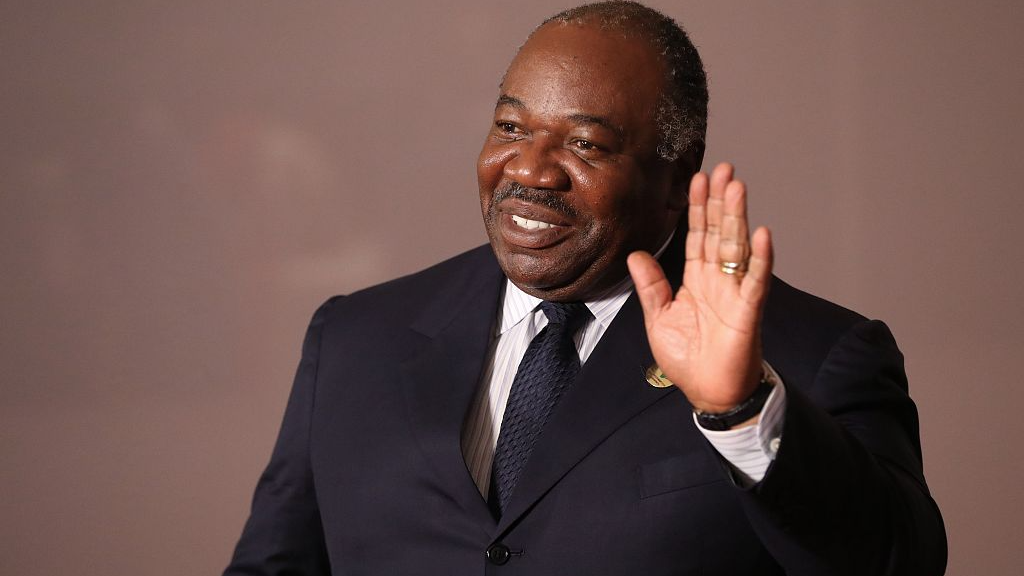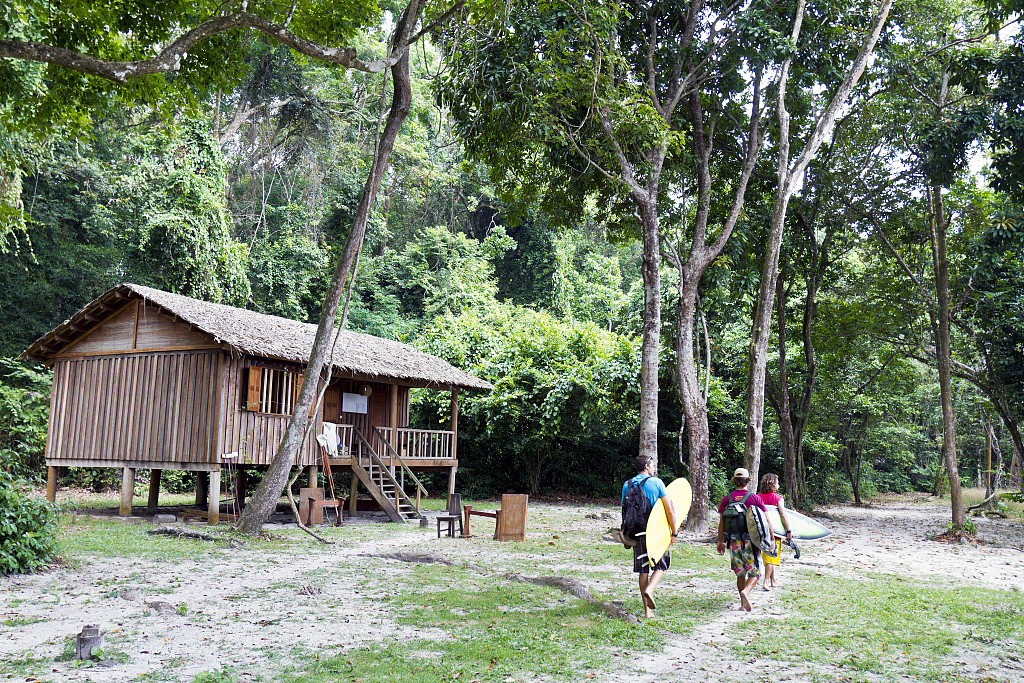
Gabonese President Ali Bongo Ondimba attends a meeting in Johannesburg, South Africa, July 27, 2018. /CFP
Gabonese President Ali Bongo Ondimba attends a meeting in Johannesburg, South Africa, July 27, 2018. /CFP
Editor's note: Stephen Ndegwa is the Executive Director of South-South Dialogues, a Nairobi-based communications development think tank. The article reflects the author's opinions and not necessarily those of CGTN.
The visit by Gabonese President Ali Bongo Ondimba to China has opened a new chapter in the strong relations between the two countries. Interestingly, President Bongo is the first African head of state to meet President Xi Jinping after the latter's unanimous re-election during the National People's Congress in March.
The two countries have enjoyed a symbiotic relationship, with Gabon acting as one of the strategic partners in West and Central Africa. Gabon was part of the itinerary of the newly appointed Foreign Minister Qin Gang during his eight-day visit to Africa in January this year. Qin also visited Ethiopia, Angola, Benin and Egypt in fulfillment of the now 33-year-old tradition of China's foreign ministers making their first overseas trip to Africa at the beginning of every year.
China and Gabon have maintained a strong bond since establishing diplomatic relations on April 20, 1974. Leaders on both sides over this period have strengthened the two countries' ties in several areas, and provided each other with support on issues affecting mutual interests and major concerns.
Thanks to its oil and mineral reserves, Gabon is one of the richest countries in Africa. Based on the latest United Nations data, the country has a population of 2.4 million people. With such a small population and a relatively small land mass, Gabon has excess resource capacity that it can exploit, and increase its share of bilateral trade with the highly populated and economically endowed China.
As part of the Congo Basin, Gabon is endowed with virgin rainforests and rich biodiversity, which it can put to good use by enticing Chinese tourists to the country. Moreover, it is a historically stable country and strategically located on the Gulf of Guinea, major qualities that tourists would consider when choosing destinations for leisure and adventure.

Pongara National Park near Libreville, capital of Gabon, August 20, 2015. /CFP
Pongara National Park near Libreville, capital of Gabon, August 20, 2015. /CFP
Experts view Bongo's visit as representative of the achievements, core interests and major concerns of the African continent, seeing that Gabon is a member of the Forum on China-Africa Cooperation (FOCAC). Trade relations are definitely high on the state visit's agenda. According to China's Foreign Ministry, China was Gabon's largest trading partner for nine straight years through 2022. In the same year, trade between China and Gabon reached $4.55 billion, an increase of more than 50.8 percent on an annual basis.
Beyond the FOCAC, Gabon is also a strategic partner in the Belt and Road Initiative (BRI). During the 2018 FOCAC Summit held in Beijing, Gabon was one of 28 African countries, which signed memorandums of understanding for the joint development of the BRI with China.
China mainly imports oil, manganese ore and timber, and exports mechanical and electrical products, steel and cement to Gabon. It is expected that the ongoing conversation between the two countries includes how the current manufacturing, science and global powerhouse can help the African economy add value to its raw materials. There is no doubt that China is willing to help its partners to move their economies a couple of notches higher for the benefit of their citizens.
Education is also another key area of bilateral cooperation between the two countries, and Africa as a whole. Since 1975, China has offered numerous government scholarships to Gabonese students. In 2020 and 2021, China State Construction built two major schools in Greater Libreville – Alibandeng and Cap Esterias – which greatly improved educational standards in Gabon.
The Alibandeng Comprehensive School Project accommodates around 2,000 primary and secondary school students, making school attendance easier for the students living nearby. The Cap Esterias middle school program admits about 700 middle school students, which enables students to study in this remote forested region. This has increased the literacy of levels of Gabonese children and youth.
African countries have benefited from thousands of Chinese scholarships to study either in their home countries or in China for various technical, industrial, vocational and entrepreneurship programs. The country has also offered many scholarships in the arts and humanities.
According to the United Nations Educational, Scientific and Cultural Organization Global Education Monitoring Report 2020, China is the leading provider of university scholarships for students in sub-Saharan Africa. The country awarded about 12,000 scholarships out of a total of 30,000 awarded by the world's top 50 donors, accounting for 40 percent of all university scholarships for students in sub-Saharan Africa.
Just like China and Africa constantly need each other to navigate and eventually overcome the toxic unilateralism of the West, China and Gabon need each other both economically and socially. The success of the bilateral partnership can have a positive impact on restoring peace in the occasionally volatile Central and West Africa by showcasing the benefits of successful trade ties.
(If you want to contribute and have specific expertise, please contact us at opinions@cgtn.com. Follow @thouse_opinions on Twitter to discover the latest commentaries in the CGTN Opinion Section.)